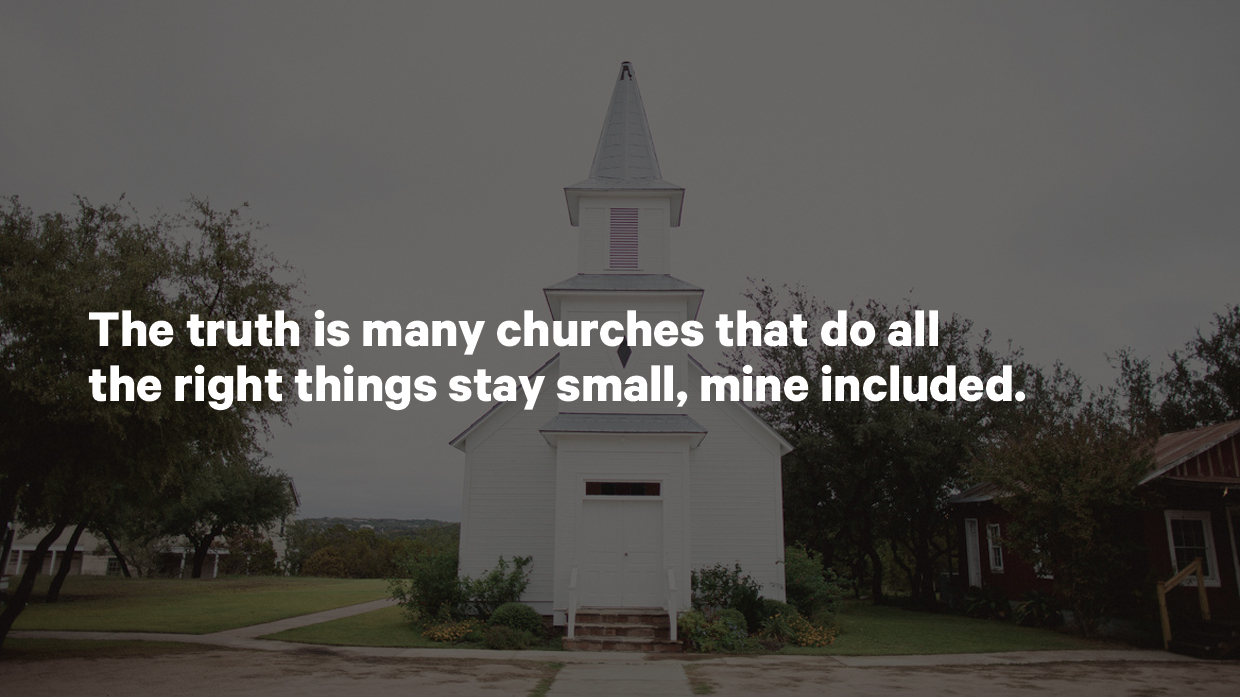Every healthy church will inevitably grow.
I used to believe that. After all, I've read about the "truth" of inevitable congregational growth in virtually every church leadership book. I even taught it myself.
I don't believe it any more. It's a myth.
Certainly the growth of the universal church is inevitable. Jesus said he'd build it, and he has.
But that universal church growth doesn't necessarily translate into the numerical growth of individual congregations—even healthy ones. How can I state that seemingly counter-intuitive fact with such confidence? Consider these facts:
• Some churches grow numerically without being healthy.
• Many churches that stay small are very healthy.
• Many healthy churches don't grow beyond a certain size no matter how healthy they become.
• There have been healthy churches for 2,000 years, but megachurches are a very recent phenomenon.
Recently, I wrote a blog post listing five essential elements of a healthy small church. One reader commented that any church that was following such principles "won't be small for long!"
The truth is many churches that do all the right things stay small, mine included.
While I appreciate this sentiment, the truth is many churches that do all the right things stay small, mine included.
For the last three decades of my pastoral ministry, a month hasn't gone by without someone telling me my church was on the verge of explosive growth.
For years I believed the voices. It was encouraging, after all. And I want my church to grow. But as the years dragged on, that unmet expectation of numerical growth laid such a heavy burden on me that it nearly killed my ministry and my very healthy church.
I spent years trying to fix a church that wasn't broken. And I broke it and myself in the process—almost permanently.
Twelve years ago we had 200 attenders, eight years ago there were 200, two years ago there were 200, and today—you guessed it—there are 200 attenders. That puts us on the upper end of small, but that's still considered a small church.
During that time, the church has steadily become as healthy, outward-focused, friendly, and worshipful as any church I know.
Are we perfect? Far from it. Have I made mistakes that have hindered possible chances for growth? Undoubtedly. I still think numerical growth is possible; it's just not inevitable.
Yes, all healthy things grow. But my physical body hasn't grown since I was in my early 20s. That doesn't mean I stopped being healthy at that point. I still grow. But now I grow in other ways. Spiritually, emotionally, mentally, and more.
It's the same for churches. If your church isn't healthy, work on that. But if your church is healthy, don't let lack of numerical growth convince you it's not. Keep at it. Dig deeper into other, more important areas of growth. Reach out, in, up, and down. Thank God for your healthy small church.
Karl Vaters is pastor of Cornerstone Christian Fellowship in Fountain Valley, California.










